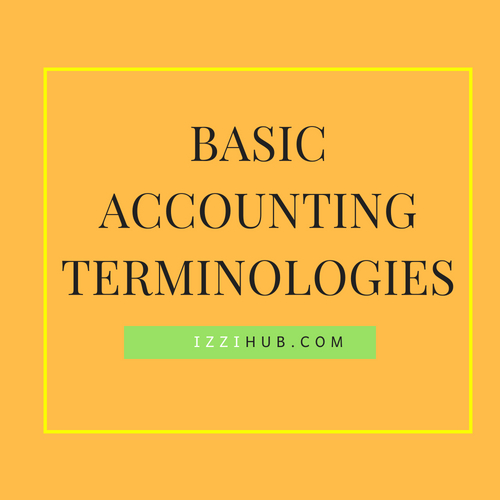Accounting is science, art and bunch of techniques. Learn first basic accounting terminologies for understanding it, Irrespective you are a student, , owner, investor, lender, shareholder or third party. You should have a clear understanding of these terms.here we will cover almost all basics terms used in accounting, however for more you may contact us.
Basic Accounting Terminologies
- Debit and Credit. Technical language in the field of accounting. Charging the head of the account with what comes and what gone. For Better understanding you should have knowledge of the Golden Rules of accounting.
- A transaction is buying or selling something or you can say the exchange of anything which has monetary value.
- Day Book is one of the basic register used in bookkeeping. Every transaction should be recorded in it.
- Cash Book contains only cash basis transactions. Where goods sold or purchased on credit will not be entered in it.
- Ledger is an individual account of the chart of account. Summary of one account. Daybook have all transaction but it contains information about the specific account.
- Voucher Small or medium organization used a printed document with permission for the occurring expense. The purpose is to maintain check and balance.
- Invoice is commercially printed bill, proof of the sale or purchase of anything.
- Bookkeeping is recording and posting the transaction into relevant accounts as per their nature of the account.
Income Statement Accounting Terminologies
- Profit and loss account shows the result of business. Cost of the goods and how much earned from it after selling after and before tax.
- Income is earned on the sale of goods after occurring the revenue for which business is established.
- Sales: When finished goods are sold, which were produced or purchased for the purpose of earning a profit.
- Purchases: When Goods are purchased for the purpose of selling at profit they will be treated as Purchased. If something buys for the purpose of running the business like, Assets, machinery or office equipment then in books of account they are debited with their account.
- Capital and revenue expenditure. The expense which has an impact on less than one year will be revenue nature expense, Like Printing and stationary, utility bills, Rent, Carriage, Freight,
Balance Sheet Accounting Terminologies
- Cash Flow Statement shows the annual summary of cash activities. It has 3 parts, How much cash flow in operating, investing and financing activities.
- Balance sheet is the summary of capital nature items. The worth of the business entity. Statement giving information regarding assets, liabilities and capital
- Trial Balance is the closing balances of all ledgers. Its internal information of the organization for preparing an income statement and balance sheet.
- Capital is the finance invest by the owner.
- Drawings are cash or goods used by the owner for personal use. Recorded separate due to separate legal entity concept.
- Creditors to whom organization is liable to pay the debts.
- Assets a valuable thing having the long-term impact, like building, machinery, goodwill, plant and equipment etc.
- Depreciation is charged on assets. Every tangible asset has its economic value and limited life. As per accounting value should be reduced as per economic usage of it. One of the most important Accounting Terminologies.
- A debenture is long-term debt instruments issued by the company at a fixed interest. usually, their ownership is transferable from one person to another.
- Dividend is the shape of profit issued by the company to their shareholders.
- Inventory generally refers to the stock of raw material, work in progress and finished goods
These are the general Accounting Terminologies used in account preparation and reporting.



